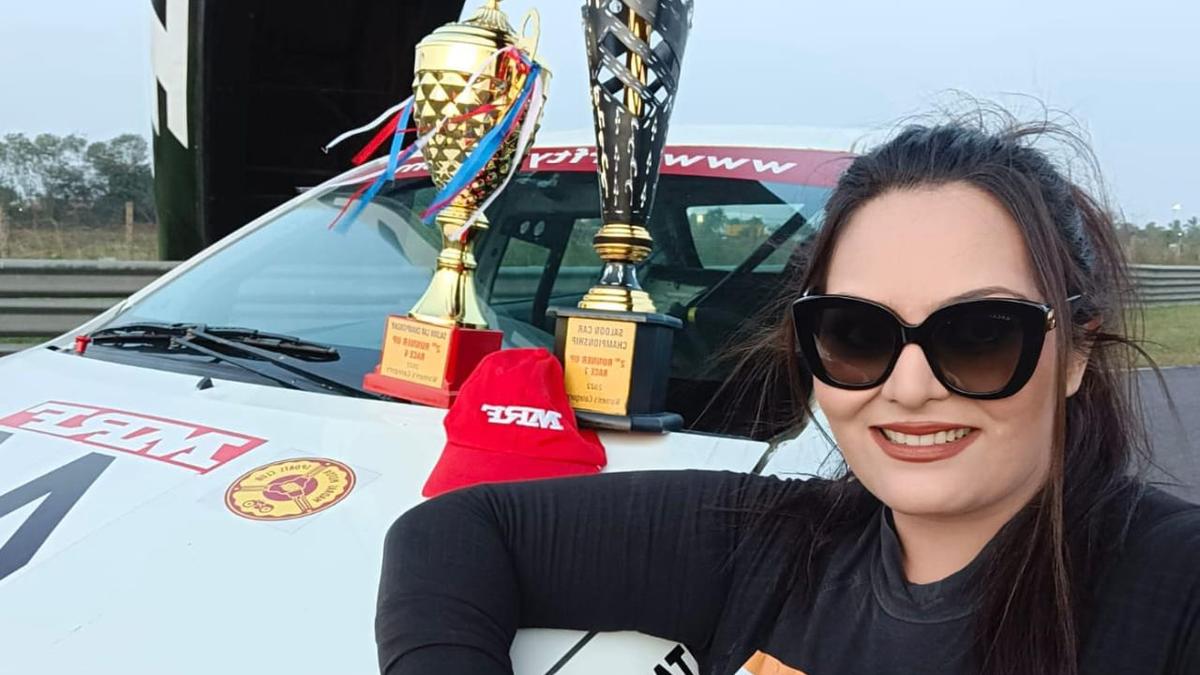Humaira Mushtaq: J&K’s first woman national champion is breaking stereotypes and shattering the glass ceiling
When four-year-old Humaira Mushtaq first took to the karting circuit her father had constructed behind their house in Dubai, she would have never imagined that her journey through the motorsport world would result in her becoming a name to remember, both on the Indian and international circuits.
The 25-year-old from Jammu and Kashmir navigated her way from single-seater cars to Grand Tourers (GT) – designed for high-speed and long-distance driving – and became the first Indian to compete in the British Endurance Racing (BEC).
She was also the only woman on the grid, which comprised several veterans, and managed to impress from the start. Humaira had a memorable outing at the BEC in 2023, which laid the foundation for her to take part in several upcoming GT championships in Europe and the United Arab Emirates.
The first woman from Jammu and Kashmir to be a national champion and the first South Asian woman at the BEC, Humaira considers her pre-season testing performance to be the game-changer, which raised eyebrows in the Aston Martin garage, the team she drove for.
READ | Kush Maini is F1 material but needs to work on performance, feels mentor Mika Hakkinen
Unaware of her potential, they asked her to participate in seven days of testing instead of the initial four. “When I joined Aston Martin for testing at Donington, they were really upfront with whatever they wanted. They said, ‘We’ll give you a couple of pointers. Just be aware of the breaking point and you have to break early so that you don’t lose the car.’”
But little did the team know that Humaira would need only one lap to shine.
They had to constantly change the breaking point mark as she was hitting them spot on. At the end of the session, the engineers were stunned when they realised it was her first time behind a paddle shift car.
She continued to better her run in the BEC, scoring points and gaining a lot of attention. “I felt like as an Indian, I was like the centre of the audience over there.”
But it wasn’t a straightforward journey to the top of the timesheet for Humaira. Coming from a very conservative family, she initially found it difficult to deal with the challenges and stereotypes on and off the track.
“I didn’t have that kind of encouragement. I didn’t have people. I have a lot of people who would actually say to my face to back off,” she said, adding that her father was her main supporter right from her karting days.
In fact, it was her father who identified her interest in racing. “I used to show that kind of fascination for the remote control cars we had back in the day. The girly toys, I never really enjoyed. I was around 3-4 and used to drive around the house when my dad told me, ‘When you used to drive the car, you drove it like you were on the road.’”
With her father’s backing, she succeeded in progressing in her racing career, from ROTAX karting to saloon cars. Eventually, after securing podiums, she received the ITC-C licence, an international-grade licence by the FIA.
Entering the international racing scene wouldn’t have been possible without this credential. “We have got these transponders in the cars and it’s kind of like a record. FIA decides whether you are entitled to receive the licence and they’re very strict.”
A crucial criterion for the FIA was also the consistency in performance, which she managed to showcase on Indian circuits. However, when she moved to Jammu many years ago, there were fewer tracks than the handful there are now.
“BIC (Buddh International Circuit) was just under construction as it was going to host the Indian Grand Prix. We would go down south to the Madras International Circuit.”
ALSO READ | Rising star Hugh Barter dominates Formula 4 Indian Championship, sets sights on F1 glory
Through sponsorships from JK Tyres and MRF, she made a name for herself in the Indian line-up, and the fact that she was often the only female on the grid motivated her further.
“I’ve always competed against men. Whenever I’m driving on the track, I don’t see myself as a woman competing against men. When my racing gears are on, my helmet is on, I see myself just as a racing driver,” she said.
With her eyes set on representing India and winning in many more championships, starting from January 2025 when she takes to Dubai, followed by Spain and the United Kingdom, she hopes to set an example and pave the way for more girls to take the wheel.


